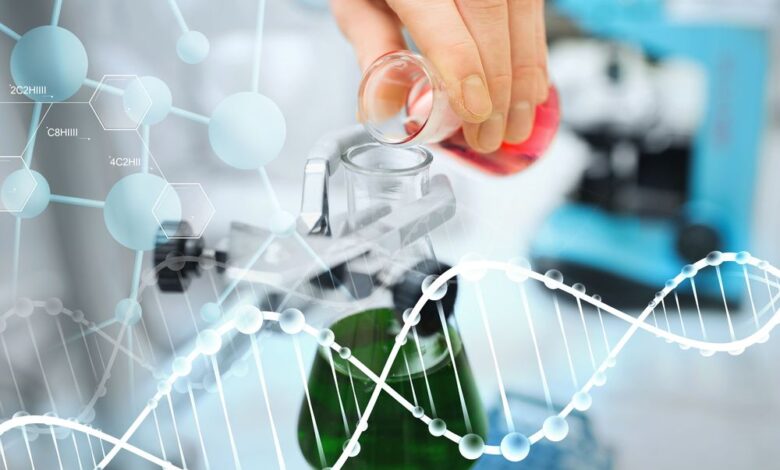Ibio Unveils Promising Data For IBIO-600 And Activin E Antibody, Enhancing Cardiometabolic And Obesity Treatment Options

$IBIO
IBio, Inc. (Nasdaq:IBIO) has recently shared compelling data from its latest pharmacokinetics study on IBIO-600, a novel long-acting anti-myostatin antibody, revealing a potential human half-life of up to 130 days. This development marks a significant step forward in the treatment of muscle preservation and obesity, positioning IBIO-600 as a potentially best-in-class therapeutic option. The non-human primate study, which was not initially designed to demonstrate statistical significance, provided insightful data on the efficacy of IBIO-600.
Administered at two different dose levels, the study showed a dose-dependent increase in lean mass and a reduction in fat mass among subjects. Notably, the high-dose recipients experienced a 5.1% reduction in fat mass, highlighting the drug’s potential for substantial impact on body composition. Further analysis using standard pharmacokinetics calculations suggested that the half-life of IBIO-600 in non-human primates ranges from 40 to 52 days.
Advanced allometric scaling methods estimate that in humans, this could extend between 57 to 130 days, potentially allowing for dosing intervals of three to six months. In addition to the advancements with IBIO-600, iBio has also reported promising preclinical results for a first-in-class Activin E antibody, aimed at treating obesity. This antibody effectively blocks Activin E signaling in human adipocytes and has shown significant potential in an exploratory study with obese mice.
The study revealed that monotherapy with the Activin E antibody resulted in a 4% fat-selective weight loss, with a remarkable 18% reduction in total body fat compared to placebo. When combined with the GLP-1 receptor agonist semaglutide, the effects were even more pronounced, enhancing total weight loss by an additional 9% and achieving a 72% reduction in body fat.
With regulatory submission for IBIO-600 anticipated in Q1 2026, iBio continues to demonstrate its capability in addressing significant unmet medical needs through innovative biopharmaceuticals. The integration of these novel therapies into iBio’s product offerings could potentially transform the landscape of treatment options available for muscle preservation and obesity, marking a new era in therapeutic development.
**DISCLAIMER: THIS CONTENT IS FOR INFORMATIONAL PURPOSES ONLY AND SHOULD NOT BE INTERPRETED AS INVESTMENT ADVICE. INVESTING INVOLVES RISK, INCLUDING THE POTENTIAL LOSS OF PRINCIPAL. READERS ARE ENCOURAGED TO CONDUCT THEIR OWN RESEARCH AND CONSULT WITH A QUALIFIED FINANCIAL ADVISOR BEFORE MAKING ANY INVESTMENT DECISIONS.**
Ibio Unveils Groundbreaking Data for IBIO-600 and Activin E Antibody, Paving the Way for Next-Gen Cardiometabolic and Obesity Treatments
Ibio, Inc. (Nasdaq:IBIO) has revealed promising data from its latest pharmacokinetics study on IBIO-600, a long-acting anti-myostatin antibody that shows great potential in the treatment of muscle preservation and obesity. The study demonstrated that IBIO-600 has a potential human half-life of up to 130 days, positioning it as a groundbreaking, best-in-class therapeutic option for improving body composition and addressing obesity.
The data comes from a non-human primate study designed to evaluate pharmacokinetics, rather than to demonstrate statistical significance. However, the results have provided valuable insights into IBIO-600’s efficacy. When administered at two different dose levels, the study revealed a dose-dependent increase in lean mass and a reduction in fat mass, with high-dose recipients experiencing a 5.1% reduction in fat mass.
Using allometric scaling methods, researchers estimate that the human half-life of IBIO-600 could range from 57 to 130 days, potentially allowing for dosing intervals of three to six months. These extended intervals could revolutionize treatment convenience for patients, making IBIO-600 a promising long-term option for muscle preservation and weight management.
In addition to the success with IBIO-600, iBio also reported positive preclinical results for its innovative Activin E antibody, designed to target obesity. This antibody blocks Activin E signaling in human fat cells and has demonstrated notable efficacy in exploratory studies with obese mice. When administered as a monotherapy, the Activin E antibody led to a 4% fat-selective weight loss and a remarkable 18% reduction in total body fat. Even more striking, when combined with the GLP-1 receptor agonist semaglutide, total weight loss increased by 9%, and body fat was reduced by 72%.
These encouraging results are part of iBio’s broader strategy to expand its pipeline of cardiometabolic and obesity treatments. The company’s integration of AI and advanced computational biology in its drug discovery process is not only accelerating development timelines but also enhancing the precision of its therapeutic approaches.
With IBIO-600 rapidly progressing towards clinical candidate selection and an anticipated regulatory submission in Q1 2026, iBio is on track to revolutionize treatments in the obesity and cardiometabolic sectors. The innovative therapies offered by iBio, including IBIO-600 and the Activin E antibody, have the potential to transform the landscape of treatment options for patients struggling with these complex conditions, offering more effective and longer-lasting solutions.
DISCLAIMER: THIS CONTENT IS FOR INFORMATIONAL PURPOSES ONLY AND SHOULD NOT BE INTERPRETED AS INVESTMENT ADVICE. INVESTING INVOLVES RISK, INCLUDING THE POTENTIAL LOSS OF PRINCIPAL. READERS ARE ENCOURAGED TO CONDUCT THEIR OWN RESEARCH AND CONSULT WITH A QUALIFIED FINANCIAL ADVISOR BEFORE MAKING ANY INVESTMENT DECISIONS.